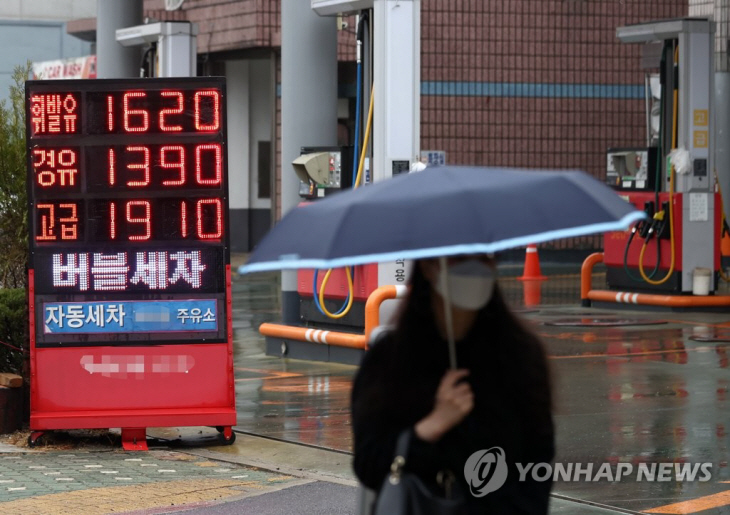
|
|
▲ A citizen is passing by in front of a gas station in downtown Seoul. Union |
[에너지경제신문 여헌우 기자] Last year, domestic oil consumption reached the lowest level in five years. Although it was a phenomenon caused by the effect of Corona 19, it seems difficult to recover the same level of consumption as before, as the overall energy policy focuses on eco-friendliness. The oil refining industry is looking for a way to improve its constitution, such as entering new businesses and restructuring.
According to the industry on the 4th and Petronet, the petroleum information site of Korea National Oil Corporation, last year’s domestic oil consumption amounted to 877.11 million barrels. This is a decrease of 5.8% from the previous year (93.195 million barrels) and the lowest since 2015 (856.2 million barrels). Domestic oil consumption has been around 900 million barrels from 2016 to 2019, before the outbreak of Corona 19.
Looking at the status of each item, the reduction in aviation fuel consumption was the greatest due to movement restrictions. Last year, domestic aviation fuel consumption was 21.7 million barrels, down 44% from the previous year.
Starting this year, oil consumption is showing a recovery trend. According to the statistics for January and February, which have been aggregated so far, in January, it recorded 75.81 million barrels, and in February, it recorded 72.4 million barrels. Compared to the previous year, consumption in January decreased by 6.3%, but consumption in February recovered to the same level as the previous year. Jet fuel consumption was still half year over year, but demand for other products, such as gasoline and naphtha, was close to the previous level.
There is tension in the oil refining industry, which is engaged in petroleum-related businesses. First of all, in the short term, all four domestic refineries are expected to succeed in turning profits in the first quarter thanks to the consumption recovery that has continued since the end of last year. In the stock market, SK Innovation (5.9 billion won) and S-OIL (S-OIL, 267.3 billion won) are expected to make a surplus in the first quarter. GS Caltex and Hyundai Oilbank are also expected to turn to the black.
However, as both the government and industry are emphasizing eco-friendly policies represented by carbon neutrality, long-term oil consumption is expected to inevitably decrease. According to the Korea Energy Economics Institute, oil demand is expected to decrease by 0.4% on average annually after 2025 due to the conversion of hydrogen and electric vehicles, reaching 868 million barrels in 2040.
This means that oil consumption, which has been reduced due to the unprecedented factor of Corona 19, will be generally established in the future.
In order to reduce carbon emissions, refineries have recently reduced the proportion of traditional petroleum businesses, and are simultaneously jumping into new businesses such as hydrogen, fuel cells, venture investment, and life platforms.
Domestic refineries are looking for new business paths, focusing on keywords such as’hydrogen’. In particular, we are considering ways to influence the entire ecosystem, such as hydrogen production, distribution, and sales. This is because it already has infrastructure such as charging through gas stations, and it has an advantage in advancing into businesses using by-product hydrogen.
Representatively, S-OIL recently entered the hydrogen business in earnest. This is by signing an investment contract with FCI, which provides clean energy solutions based on fuel cells. SK Innovation is also planning to enter into various hydrogen businesses in the future as it has identified hydrogen as the next-generation food at the group level.
